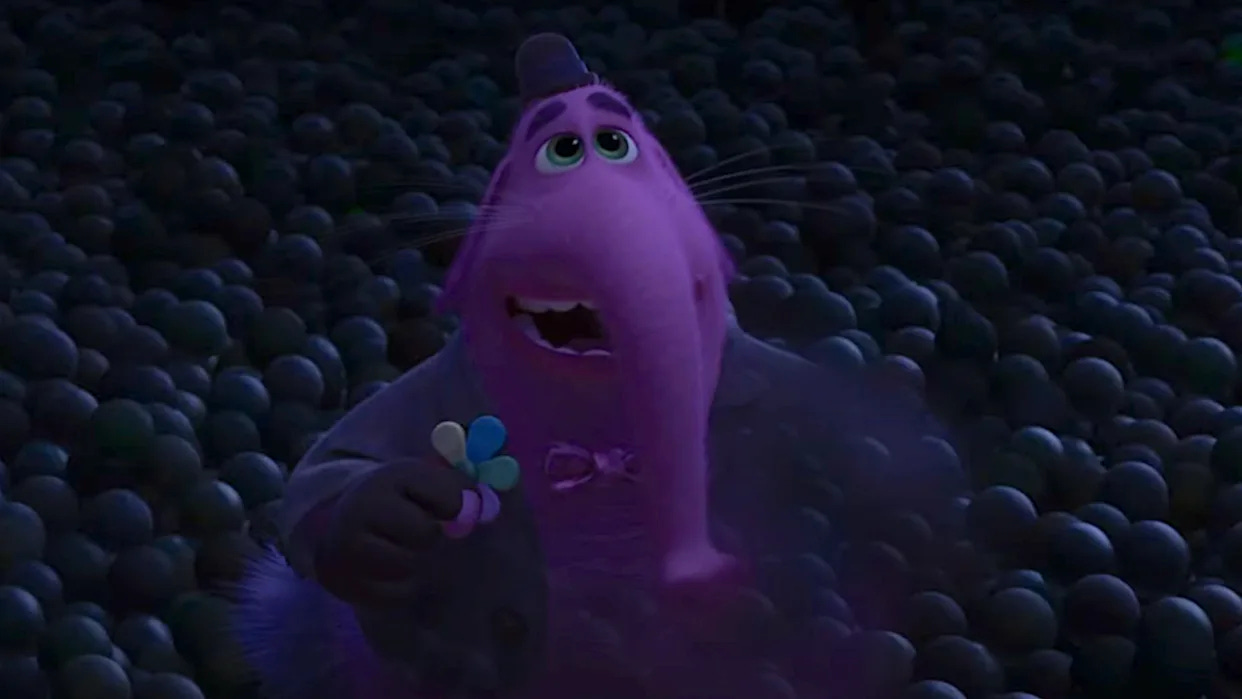What Inside Out taught me about relational harm
And why it’s worth another watch this week
As any millennial parent of a toddler would do
I rejoiced when my little one requested watching Inside Out
Instead of whichever other movie had been in rotation for the past 2732983974 days
Did I know that I’d be rocked and withered yet again when Bing Bong said “Take her to the moon for me” (IYKYK)?!
Yes.
AND, I believe that some tears are worth having
Tears from losing someone or something meaningful - my cup of tea
Someone meaningful treating you like shit so you cry - not my cup of tea
Relational harm, or harm experienced by individuals and communities caused by interpersonal and systemic relationships, is the bedrock of our lived experience
(peep this definition is adapted from the European Research Council funded project entitled “Relational Harm: Targeting the Family in War and Oppression”)
The rockier and more intense our experience of relational harm is, the more damage is done to our sense of self, our physical wellbeing, and our (dys)functionality within future relationships
Berit Brogaard, D.M.Sci., PhD shared on Psychology Today in a piece entitled ‘The Relational Harms of Childhood Psychological Abuse: Abusive lies instilled in children can cement into self-hatred in adulthood’ that
“One of the most devastating relational harms of childhood abuse is that the abusive lies the child is told comes to constitute their adult self.”
Been there. Unwillingly done that.
So after a lifetime of intentionally avoiding certain movies, songs, locations because they might “make me feel something”
I still surprise myself when I willingly re-encounter something that brings the feels front and center
As far as Inside Out is concerned, Bing Bong’s departure is usually the brunt of things
But this time, something more insidious (okay, I’m slightly exaggerating the creators intentions here) took me by surprise
The difference in which emotion is the lead “inner council” member for each of Riley’s parents
[If you have no clue what I am talking about, Inside Out is a Pixar movie about the emotional reality of 11 year old Riley whose emotional wellbeing is managed at “headquarters” where Joy, Sadness, Fear, Disgust, and Anger use a switchboard to navigate and emote Riley’s day to day life]
Throughout the movie we get a behind the scenes view of Riley’s parents (Bill and Jill) emotional inner council
Who is manning the switchboard for Bill? Anger
Who is manning the switchboard for Jill? Sadness
The legacy of surviving men’s anger causes women’s sadness
I said what I said, not because of a movie, but because seeing it represented in a movie gave me the words and visuals for something I and the women in my family before me have experienced
“Standard” gender norms and roles aren’t just about the doing
They are the cause and effect of our being
Grandpa expects dinner on the table by 4:30pm or so help him God, Grandma’s gonna get it
Grandma scurries around eggshells, pantry shelves, and flying fists or so hurt her God, Grandpa’s gonna give it
Dad expects peace and quiet while his big game is on, the one where no one on the team knows he exists yet his undivided attention is needed to secure the big W
Mom caters to every wing craving, dropped ball, and empty beer can, never knowing how long before he stops “having a heart of gold” and starts wielding his rotten heart on his sleeve
Boss gives you a ‘stern warning’ when his 8:07pm email isn’t responded to until 8:11pm
You practice your two week notice speech in the mirror every two weeks without giving notice
Cycles of harm continue to happen when we don’t know which emotion is manning the board so we can better navigate how (un)well our relationship wheels are turning
The emotion leading our SOPs (standard operating people’cedures) is a result of the degree of relational harm we’ve endured - and the (non)existence of the relational repair we’ve received
The emotion leading your inner council reflects the gender and age norms/dynamics we engage with [looking at you, the invisible load of primary parenting, womanhood amidst patriarchy, etc.*]
So who is your CEO - Central Emotion Operator?!
Want to catch more of my drift?!
Peep the Central Emotion Operator for each of the human characters shown during the closing credits of Inside Out
Mom - Sadness
Dad - Anger
(presumably unmarried female) Teacher - Joy
(presumably cishet male) Bus driver - Anger (all 5 of his council members are anger btw)
Pizza person - Disgust
Emo/goth middle school peer - Fear
Clown - disenfranchised Joy
*(note race and racism are not expressly named as a dynamic we engage with because being Black is NOT a problem AND most of my fellow white people absolutely are unwilling to see that we ARE the problem and a major cause of relational harm)


